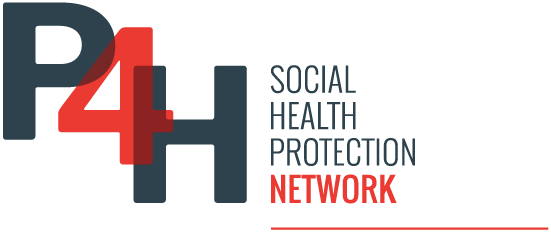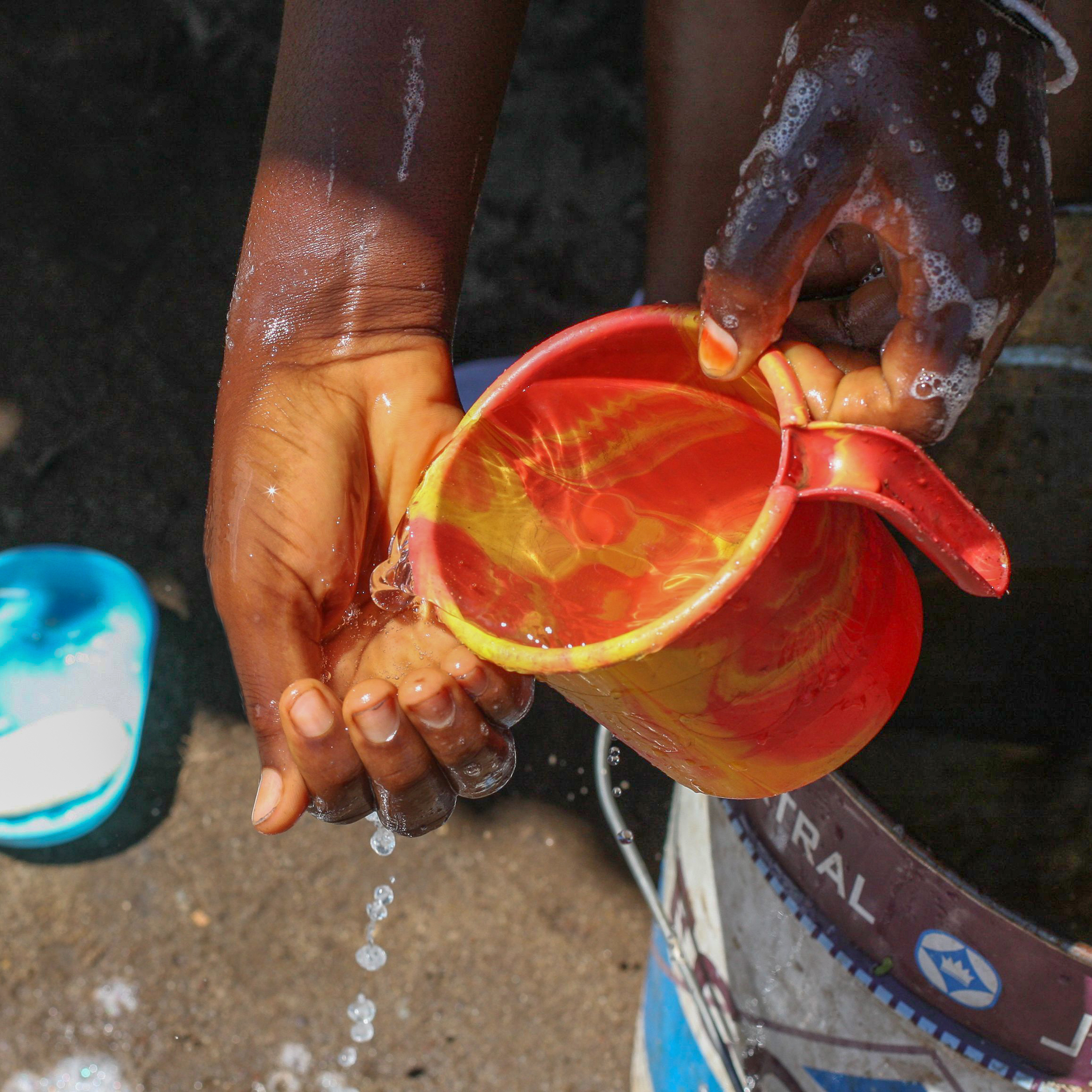The COVID-19 pandemic has swept the world, reshaping the global health landscape and triggering the deepest economic crisis since the Great Depression. The pandemic has clearly shown the interdependence of health security and economic security.
While health security – reducing the vulnerability of societies to pandemics such as COVID-19 – is a distinct objective, it is interrelated with efforts to move toward universal health coverage (UHC). Achieving UHC and health security requires a foundation of common goods for health, produced through strong and resilient health systems. The crisis has highlighted this interdependence.
The immediate and comprehensive response to COVID-19 must reinforce universal systems that contribute to both health security and CSU. This will have an impact on how domestic resources and development assistance, currently channeled to the health sector, should be used to protect against future emergencies and maintain coverage of essential services.
COVID-19 will affect national public funding and development assistance priorities in the area of health.
The COVID-19 pandemic has caused a huge economic crisis affecting all countries. The International Monetary Fund (IMF) forecasts that more than 170 countries will experience negative income growth in 2020, a clear reversal from just a few months ago, when 160 countries were expected to experience growth. According to estimates, economic contraction as a result of COVID-19 could plunge 71 million people into extreme poverty by 2020, with sub-Saharan Africa and South Asia being the hardest hit regions. Although the true depth and duration of the crisis is still unknown, governments are rushing to mobilize and allocate funds for the emergency response to COVID-19 in order to maintain macroeconomic stability while mitigating the impact of the crisis on vulnerable households, businesses and essential services. In recent months, more than 90 countries have requested assistance from the IMF and more than 100 have received support from the World Bank to combat COVID-19.
The impact of the economic crisis on healthcare spending may be significant. It is possible that, in the short term, healthcare costs will increase as a result of the response undertaken by countries. In the medium term, a decline in tax revenues and an increase in government debt obligations can be expected, which will put pressure on any fiscal space available for public spending. Countries with social health insurance financing arrangements that rely on contributions from personal income tax will be affected by rising unemployment and falling wages. Initial analyses based on IMF and World Bank Group forecasts of the economic impact in selected Asian countries indicate that public spending on health will decline without adaptation measures and/or reprioritization. We have also learned from previous crises that poor women and children are disproportionately affected by economic vulnerability and are at greater risk of suffering negative health-related consequences.
The health sector will be under financial pressure in the medium to long term due to revenue constraints and spending demands arising from the need to increase investment in core public health functions, as well as the delay or elimination of essential care for conditions other than COVID-19. In taking action to address these pressures, policymakers should avoid approaches that, at best, provide only limited additional resources at the cost of making the system more vulnerable to shocks, such as policies that link funding and coverage to employment status.
The financial pressure on countries is clear, but the impact of COVID-19 on development assistance cannot yet be measured. High-income countries have been hit hard and domestic fiscal pressures may lead to reductions in development assistance at precisely the time when low- and middle-income countries need the most support. Given these competing pressures, broad-based support is needed from international financial institutions and technical partners that can provide the necessary assistance. In the health sector, COVID-19 reaffirms the need for countries to harmonize their service delivery models, improve their health governance and financing modalities, and prioritize community and personal care services and each other in order to make the best use of available resources. Therefore, health agencies should focus on providing support to countries for immediate response and actions aimed at strengthening health systems in the medium term to reinforce the foundations of health security and universal health coverage (UHC).
In recent years, donor transitions have featured prominently in health financing discussions in many low- and middle-income countries. Many of these transitions are based on thresholds relative to the countries’ gross national income per capita.[1] The transitions are based on the countries’ gross national income per capita. Given the expected impact of COVID-19 on economic growth and fiscal capacity, domestic resources to compensate for reduced donor funding will be under severe pressure.
However, the response to COVID-19 also provides an important opportunity to more effectively manage the transition and the interface between domestic and external funding. Partners should join forces to support more effective and coherent systems strengthening aimed at improving health security and increasing effective coverage of essential services. Previous approaches have contributed to achieving specific results, but also to creating inefficiencies that are important to address in order to strengthen sustainability and prepare for transitions. Future approaches must address the lack of attention to the health commons, particularly public health operations, as well as the over-fragmentation of funding streams for essential services and systems, and multiple chains of accountability.
Pandemic preparedness and response capability must become the “step zero” of the CSU program.
The pandemic is an important reminder to the world that pandemic preparedness and response is a common good for health. Fragile and unprepared health systems pose a threat to global economic security. As the world emerges from the immediate response to the crisis, countries and development partners must rethink their funding priorities. They should place core public health operations, such as surveillance systems, water and sanitation, and health promotion, at the center of health systems development strategies. Despite repeated warnings and their relative affordability, the level of investment in this type of common good for healthcare functions is clearly insufficient. The world is now seeing in real time the consequences of this lack of investment. Countries are using funds allocated to the COVID-19 response to address gaps in surveillance, risk communication systems, and capacity to cope with a large increase in demand. However, these investments must be made wisely if they are to be sustained over the long term, making sure to harmonize them with other initiatives aimed at strengthening health systems.
Domestic and external resources should be used more effectively to maintain and increase coverage of essential services.
The global economic downturn caused by the pandemic will require using resources, from both domestic and donor sources, more efficiently. Apart from the direct impact of COVID-19, the pandemic will have important indirect effects on the coverage of essential services (see examples: a, b, c, d, e, f,). It is not enough for health systems to be resilient to future epidemics; it is also necessary to protect and expand hard-won gains in the coverage of essential health services.
To this end, countries and their partners must work together with civil society to provide a strong impetus for adequate and collective health financing, prioritizing the health commons. Now that countries are rushing to fill revenue gaps, it may be an opportune time to make or re-make the case for pro-health taxes and reduced fossil fuel subsidies. These regulatory measures can be beneficial for fiscal margin and health. In the interest of sustainability, attention must also be paid to strengthening public financial management systems and improving strategic purchasing in order to expand coverage and achieve better use of resources.
At the sector level, ministries of health and related agencies (e.g., social health insurance funds) should focus on making the most effective use of available public resources to protect and increase essential services and transparently communicate the results achieved. This must also include improving governance and ensuring that attention is paid to equity and to marginalized people and those left behind. Currently, the excessive fragmentation of financing modalities works against the creation of resilient and well-prepared health systems that provide cost-effective community services and quality individual patient-centered services.
Conclusion
Times of crisis provide a unique opportunity to address persistent obstacles that have long been out of reach. From a historical perspective, the collective investments we now enjoy have often been made in response to difficult times, but it would be a mistake to assume that logical and technological solutions alone are sufficient. Political will, advocacy by civil society groups and private companies, and support from international partners play a key role. The pandemic is a turning point towards different approaches in the health sector, both with respect to what should be funded and to instruments and approaches based on the reflections and priorities described above.
The recently launched Access to COVID-19 Tools Accelerator and the successful replenishments of Gavi, the Vaccine Alliance, the Global Fund, the Global Financing Facility and the World Bank’s COVID-19 emergency response funds (US$160 billion) provide an opportunity to help countries put their health systems on a firmer footing to achieve common goods for health and improve access to essential health services without financial hardship (or CSU). Advocacy by CSU2030 constituents, joint commitments and collaboration under the Global Plan of Action for Healthy Lives and Well-being for All and its Sustainable Finance Accelerator should help drive the agenda forward.
[1] Gavi, the Vaccine Alliance bases its eligibility criteria on 3-year average GNI with some adjustments, while the Global Fund bases eligibility on both income thresholds and disease burden. For the World Bank, the transition from the International Development Association to the International Bank for Reconstruction and Development is based on income levels.
Specific collaborators are: Maria Skarphedinsdottir CSU2030 Core Team, Santiago Cornejo Gavi, the Vaccine Alliance, Michael Borowitz Global Fund to Fight AIDS, Tuberculosis and Malaria, Joe Kutzin World Health Organization, Health Systems Governance and Financing, Toomas Palu World Bank Group, Health, Nutrition and Population, Ellen Van de Poel Global Financing Mechanism, Susan Sparkes World Health Organization, Health Systems Governance and Financing.
Photo credit: WHO/Fid Thompson


